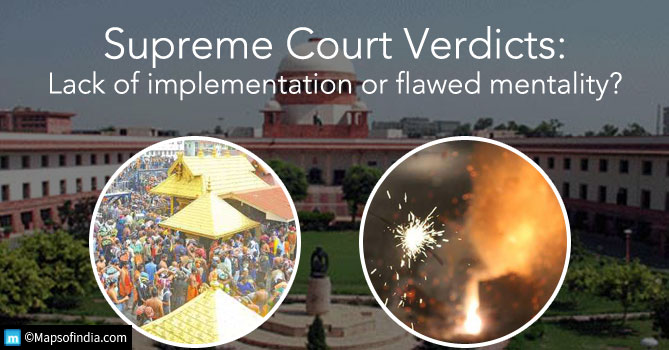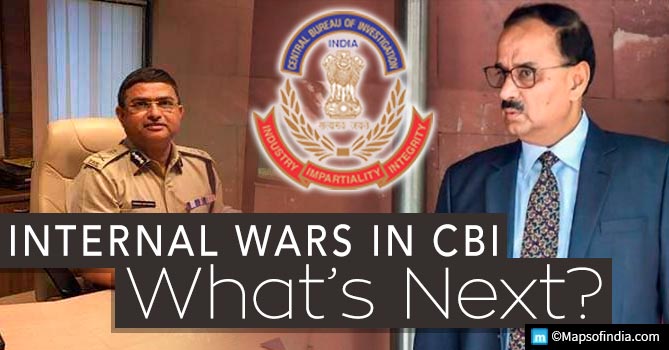
There is no, and cannot be, any situation in which we don’t respect the law and the judiciary. It is unacceptable to attack the courts; criticism is allowed, but attacks are not. It shakes the basis of our democracy.
-Reuven Rivlin
Rivlin might have had Israel in his mind as he uttered those words, but they fit just as aptly in the Indian scenario. Established on 28th January 1950 (as the Supreme Court of India), the apex court has traversed through a historical journey in the span of nearly 70 years. It has seen us becoming an independent nation (as the Federal Court of India), withstood the time of emergency, passed landmark judgements.
Despite the long and glorious history of the apex court, time and again, it has often seen days of falling and faltering confidence. With the latest incidents of people reacting to the Sabarimala verdict, the ban on crackers etc; one is automatically left to ponder over the increasing defiance. Is it because of a lack of implementation by the authorities or because of the flawed concepts of the people?
Jibes at Supreme Court Verdicts
Sabarimala Temple
On 28th September 2018, in what would be called a historical judgement by many, the Supreme Court struck down an ages-old ban on menstruating age-group women from entering the Sabarimala temple. Next, what began as protests and petitions to reconsider the case, ended up with a large crowd of said devotees standing on the temple doors, ready to ‘protect’ its sanctity.
When the Sabarimala Temple reopened for its monthly 5-day prayers in October, protestors in the number of hundreds were present to make sure no woman went past the doors. So, in a way, the entry of women remains banned in the temple effectively, despite the apex court’s decision.
A ban on Diwali firecrackers
The poisonous air of our capital is not exactly a national secret. So, about two weeks before the festival of Diwali, the Supreme Court gave out a verdict, putting multiple constrictions on bursting and selling of firecrackers. Bursting firecrackers was permissible only in the window of 2 hours. Moreover, the sale of any other firecracker, other than green crackers, was banned in the NCR.
The result?
The next morning after Diwali, the city recorded the poorest air quality index of this year. The police authorities have admitted that there were violations of the SC verdict in the capital. Even Mumbai observed more than 100 cases of violation.
Whom to blame?
There are two available options-
One, we blame the authorities, the Supreme Court for not being effective enough; not doing enough. Or,
Two, we try to reach to the root cause of our problem.
Naturally, we Indians have a tendency to shift blame on other shoulders. As the city of Delhi woke up to a polluted air after Diwali, it didn’t take long before people started highlighting how the SC verdict had been of no use. And, of course, the police authorities have themselves admitted to violations. If the regulations had been imposed more sternly, surely the situation would have been under control, right?
True, there were imperfections in the system. But, if you look at the scenario from another perspective, isn’t it borderline absurd that the citizens need a court judgement to tell them not to pollute? Across the country, people were seen bursting crackers with their mouths covered, some even in masks! You can impose regulations, yes. But, you can’t save people from their own ironies.
Conclusion
It would take no time to question the officials’ lacking qualities, but it would perhaps take lesser time to change your own habits. It is true that where the governing body is lacking, we must question and seek answers. But, that doesn’t give us the golden ticket to shy away from our own responsibilities.
When the devotees at Sabarimala temple denied women their constitutional right of entering the temple and worshipping, in effect they were also standing against the judiciary. Like Rivlin said, “It is unacceptable to attack the courts; criticism is allowed, attacks are not”. Defying the highest judicial body in the country in this manner, keeping rationale aside is no way to live in a democratic country.
After all, you cannot demand a good country if you yourself are not a good citizen.





